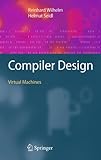If after going through the lessons from PL101 you decide that stuff is interesting to you then another book that I highly recommend is "Compiler Design: Virtual Machines": http://www.amazon.com/Compiler-Design-Machines-Reinhard-Wilh.... That one goes through various virtual machine implementations and by the end of it you'll understand precisely how pointers, stacks, arrays, etc. all work in various programming languages. Another good book is "Essentials of Programming Languages": http://www.amazon.com/Essentials-Programming-Languages-Danie... but I haven't put enough time into that one to say whether it will benefit you or not.
If the previously mentioned online resources and books are not your cup of tea then another good way to exercise your programming muscles while learning about data structures and various program organization principles is to implement a simple project like a ray tracer or a recursive descent parser in different languages. Start with a language you are fluent in and then diversify from there. This is actually how I learn programming languages and having a clear goal in sight is an excellent motivator for exploring all the new concepts in whatever language I'm learning.
Paying to learn at this point is a waste of money in my opinion. If you are comfortable learning stuff on your own then there is no shortage of resources available on the internet. All it takes is some discipline to follow through.


I kinda wish there were more meetups that focused on this kind of stuff instead of the latest and greatest frameworks. This kind of fundamental theory is applicable in any kind of application and framework setting.